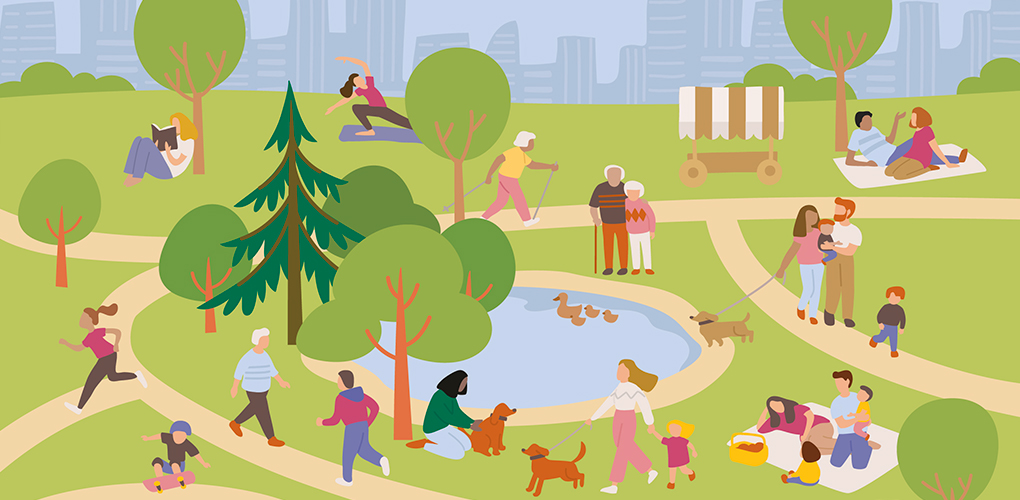
Creating Opportunities for Better Health in a Post-COVID World
These days, we are exposed to increasing data and stories proving that individuals most vulnerable to COVID-19 are disproportionately from communities that already suffer from inequitable rates of pre-existing health conditions, poor housing, and low-paying or unstable employment with limited, if any, benefits. And yet many of these individuals are risking their lives to provide us with essential services. However, it is that act of providing essential services that has increased public awareness of these long-standing inequities and created opportunities to imagine a better and more just society.
Many of our campaigns focus on fixing some of our most challenging societal issues such as mental illness, substance misuse, poor birth outcomes among African-American women and babies as well as rebuilding communities to better address childhood trauma and adverse experiences. In the era of COVID-19, we have remained nimble and responsive to emergent client needs, and more specifically, keenly on top of how the pandemic is affecting and further shaping the tough challenges we are aiming to solve.
A few examples include:

Although work promoting smoke-free outdoor dining for San Diego County’s Tobacco Control Resource Program became out-of-date in a shelter-in-place environment; emerging research showed a corollary relationship between smoking, vaping, and severe COVID-19 risks. Armed with new data, we updated messaging and shifted focus to reach target audiences in their homes with educational information regarding the increased health risk and tips for managing COVID-19-related anxiety and stress.

While one campaign was shifting, our work supporting All Children Thrive became more urgent as instances of child abuse increased related to COVID-19. Fortunately, our Governor authorized emergency funding to protect these children, and we are actively responding to ensure communities across the state have the resources to support at-risk youth.

For mental health, we’re working with Its Up to Us Riverside County to empower people to talk openly about mental illness, recognize symptoms and seek help. One in five adults suffer from a diagnosable mental health challenge and those numbers are expected to increase by as much as 30 percent in the aftermath of COVID-19. The minute we got the stay-at-home order, we began shifting resources from radio and increasing our social media to reach people at home with mental health information and resources. The team also added additional promotional support for the organization’s emergency help hotline to ensure all County residents know they have 24/7 access to confidential mental health information and resource referrals.
COVID-19 has forever changed our lives, behaviors, and beliefs in ways that were unimaginable only two months ago. While the challenge to rebuild is daunting, we are also seeing unprecedented opportunities to create a more equitable and healthier world.
Our charge coming out of this is to seize these opportunities to compel changes in thinking and behaving that will extend beyond the changes in our current circumstances. As an agency devoted to shaping the way we think and behave for broader social good, we remain even more committed to tackling our toughest challenges to make our world a better and more just place.